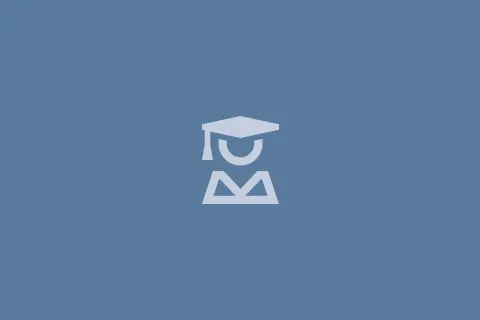Key information
Heriot-Watt University was ranked 2nd in Scotland by the National Student Survey 2025 and 5th in the UK by the Times and The Sunday Times Good University Guide 2026.<br>
- UCAS code
- G3N3
- Level
- Undergraduate
- Delivery type
- Full Time
- Degree qualification
- BSc (Hons)
- Mode of delivery
- On-Campus
- Duration
- 4-5 years
- Location
- Edinburgh
- Start date
- September
If you want to start your career with a year's work experience in hand, then you should consider this Programme. It combines the rigorous studies of the BSc (Hons) in Mathematical, Statistical and Actuarial Sciences with a year-long work placement in level 4. Good performance means 12 months' experience of working in an organisation in the finance or actuarial sector. The Diploma in Industrial Training is gained through successful completion of this work placement. The work placement helps you to develop specific work-related skills, giving you the opportunity to apply and build upon the theory you learn in your studies. It allows you to take on real responsibilities, enhance your interpersonal skills through teamwork and communication and experience workplace culture.
In addition to your year-long work placements you will follow the BSc in Mathematical, Statistical and Actuarial Sciences. This programme provides comprehensive training in modern mathematics, contemporary statistics and actuarial sciences. Studying this variety of courses offers a dynamic blend of analytical problem-solving skills, data interpretation and a sound understanding of the intricacies of the insurance, pensions, economic and finance sectors. This degree offers the opportunity to gain exemptions from Core Principles subjects of the Institute and Faculty of Actuaries (IFOA) Curriculum professional exams. This programme of study equips individuals to address complex real-world challenges, making them highly sought after in a wide array of career paths. As a major financial and insurance centre, Edinburgh offers excellent career opportunities.
We have carefully designed a curriculum that teaches a comprehensive programme in modern mathematics, statistics and actuarial sciences. Our programmes also includes courses that emphasize practical and transferable skills, IT expertise, and career readiness. Activities include, giving presentations, producing independent research reports, working in groups to solve problems, and developing your career skills. Our mathematics degrees are ranked 1st for graduate employment prospects in The Times Good University Guide 2024. Our recent mathematics graduates use their skills in the Financial, Engineering, Data Science and Professional Services sectors, and more.
Note, the Diploma is available to all students, including those from overseas, as it does not require a work visa. If you are planning to come to the UK using a student visa you should check the Tier 4 Student Visa Policy Guidance to confirm you are permitted to undertake a work placement as part of your studies. It is your responsibility to find a suitable work placement; acceptance onto the programme does not guarantee you a placement. If you are registered on the programme and are unable to find a suitable work placement before the end of level 3 then you can transfer to the standard BSc (Hons) in Mathematical, Statistical and Actuarial Sciences degree.
Centre of Actuarial Excellence
Heriot-Watt University is recognised as a ‘Center of Actuarial Excellence’ by the Society of Actuaries (SOA), North America. We are the only ‘Center of Actuarial Excellence’ in Europe and one of only 30 other schools worldwide with this designation. With roots dating back to 1889, the Society of Actuaries (SOA) is the world's largest actuarial professional organisation with more than 28,000 actuaries as members.
Institute and Faculty of Actuaries
The Institute and Faculty of Actuaries (IFoA) in the UK administers examinations necessary to achieve the esteemed designation of a Fellow of the IFoA. Passing these rigorous exams is crucial for individuals aiming to become fully qualified actuaries, allowing them to practice in the field. This degree programme offers the opportunity to gain exemptions from Core Principles subjects of the Institute and Faculty of Actuaries (IFOA) Curriculum professional exams.
Maths Café
The Maths Cafe is a peer supported initiative that allows maths students to seek help, ask questions or just chat about maths with their peers. The sessions are coordinated by the Maths Gym and organised and guided by peer mentors who are year 3, 4 and 5 maths students. Participants gain invaluable skills in teaching and communicating mathematics. The Maths Café provides support in the following areas:
- help with difficult tutorial questions and exam revision
- advice on how to manage your workload and organise studies
- forming study groups and chatting about maths in an informal atmosphere
Maxwell Institute for Mathematical Sciences
We are part of the Maxwell Institute for Mathematical Sciences, a joint research institute bringing together within a single body the research activities of:
- The Department of Mathematics at Heriot-Watt University
- The Department of Actuarial Mathematics and Statistics at Heriot-Watt University
- The School of Mathematics at the University of Edinburgh
The Maxwell Institute promotes the development of new mathematical theory and tools meaning that the mathematics that we teach is up-to-date and relevant for solving current real world problems.
International Centre for Mathematical Sciences (ICMS)
ICMS is jointly owned by Heriot-Watt University and the University of Edinburgh, with support from the Engineering and Physical Sciences Research Council of the UK. Its aims are to advance the mathematical sciences and highlight the impact of mathematical innovation, promoting interactions with other disciplines, industry and commerce. CMS organises international workshops and conferences in all areas of mathematics and these attract leading mathematical scientists from across the globe.
Your student experience
Our BSc Mathematical, Statistical and Actuarial Sciences and Diploma in Industrial Training programme provides a wide range of expertise and research opportunities in various mathematical disciplines. These include:
- Advanced Mathematical Theory: Delving deeply into the fundamental theoretical principles that underlie pure mathematical concepts and applications.
- Applied Mathematics: Developing mathematical models that can be applied to solve real world problems.
- Computational Mathematics: Developing extensive numerical and programming skills so you can solve complex mathematical models and optimise solutions of real problems.
- Mathematical Education: We have a dedicated team with expertise in technology enhanced learning and you will benefit from these developments in teaching and assessment.
- Statistics and Data Analysis: Developing essential statistical and data analysis skills to extract meaningful insights from data sets and to inform decision making.
- Actuarial Science: Developing key knowledge of actuarial and financial mathematics and applying mathematics to insurance, pensions and risk management scenarios that play a vital role in the career of an actuary.
Go Global
There are currently no Go Global opportunities for this particular programme. However, other Go Global opportunities may be available. Please contact studywithus@hw.ac.uk for more information.
Course content
September Intake - Edinburgh
Year 1
Level 1 has been designed to ease the transition from school to university. Students take courses in calculus and algebra which continue the development of these subjects already studied in school while also taking courses on statistics, economics and finance.
Mandatory September
- Calculus A
- Introduction to University Mathematics
- Logic and Proof
- Elements of Probability
Mandatory January
- Calculus B
- Becoming a Professional
- Topics in Statistical Practice
- Problem Solving
Year 2
You will continue your study of calculus, algebra, and statistics taking courses in multivariable calculus and real analysis, linear algebra, and probability and statistics. Additionally, you will start to studying actuarial and financial mathematics and numeric analysis.
Mandatory September
- Real Analysis
- Linear Algebra
- Algorithmic and Scientific Programming
- Probability and Statistics A
Mandatory January
- Multivariable Calculus
- Actuarial and Financial Mathematics
- Probability and Statistics B
Optional January
- Data Science Life Cycle
- Numerical Analysis A
Year 3
You will study abstract algebra, ordinary differential equations and statistical modelling. You will also have the opportunity to study a wide range of options including life insurance mathematics, stochastic processes, survival models, vector analysis, complex analysis, numerical analysis and other topics in pure and applied mathematics.
Mandatory September
- Abstract Algebra
- Statistical Models A
- Vector Analysis
Optional September
- Economics for professionals
- Life Insurance Mathematics A
- Stochastic Processes
Mandatory January
- Ordinary Differential Equations
- Statistical Models B
- Complex Analysis
Optional January
- Financial Reporting and Finance
- Life Insurance Mathematics B
- Survival Models
Year 4
12 month work placement.
Mandatory September
- Industrial Training Placement A
Mandatory January
- Industrial Training Placement B
Year 5
All courses are optional in this year and you can choose from life insurance mathematics, pension funds, life office practice, statistics for social science, bayesian inference, risk theory, time series, optimisation, partial differential equations, mathematical biology, functional analysis, geometry, numerical analysis and other topics in pure and applied mathematics.
More in-depth information on the content of the courses listed above, how they are assessed and the learning outcomes can be accessed via our current student portal.
Optional September
- Mathematical Biology A
- Functional Analysis
- Optimisation
- Time Series and Machine Learning
- Numerical Analysis C
- Life Insurance Mathematics A
- Pensions
Optional January
- Mathematical Biology B
- Partial Differential Equations
- Numerical Analysis D
- Geometry
- Life Insurance Mathematics B
- Risk Theory
Disclaimer
The courses mentioned above may change between now and the time that you study. For more information, please view our Terms and Conditions.
Programme Video
Mathematics at Heriot-Watt University
Student testimonials

Takura's story
Graduate, Mathematical, Statistical and Actuarial Sciences BSc (Hons)
Heriot-Watt stood out to me for studying my degree. I enjoyed learning mathematical problem solving through exposure to real-world examples.
Amber Welch
Hi! I study Mathematics at Heriot-Watt University. I chose maths because it was always a challenge for me — I actually failed my first maths test in high school. From that moment on, I made it my mission to prove to myself that I could do it. One of my proudest moments was receiving the University Prize for First Year Mathematics. It felt amazing to see that all my effort and determination had paid off — it really encouraged me to keep pushing myself.
Fees and funding
| Status | Fee |
|---|---|
| Scotland | Paid by SAAS |
| England / Wales / N Ireland / Rep of Ireland | £9,790 |
| International | £25,808 |
- Status: Your residency status is usually defined as the country where you have been ordinarily resident for the three years before the start of your course.
- International: 'International' includes applicants from European Union countries who do not hold Pre-Settled or Settled status in UK. (This does not include students from the Republic of Ireland - see above).
Additional information
Placement Year fees
Students should note that the standard fee does not apply for the Diploma in Industrial Training/work placement year (Year 4). Instead a fee of £3,000 is charged for the year spent on placement.
Scholarships and bursaries
Bursaries for students from England, Northern Ireland or Wales
In addition to government loans and grants towards the costs of fees and living costs, we are offering generous financial support to attract and support eligible undergraduate students from England, Northern Ireland or Wales:
- Heriot-Watt University Bursary (up to £3,100 per year)
Entry requirements
We have standard entry requirements for all of our courses that you will have to meet.
Year 1
Standard entry requirements
- Highers ABBBB (over two sittings). Must include Maths achieved at A.
- A-Levels BBB. Must include Maths achieved at B.
- International Baccalaureate 28 points. Must include Maths achieved at Higher Level 5.
- BTEC Extended Diploma DDM. Must be in a relevant subject and contain sufficient Maths.
- HNC B in graded unit. Must be in a relevant subject and contain sufficient Maths at SCQF Level 6.
- HND BB in graded units. Must be in a relevant subject and contain sufficient Maths at SCQF Level 6.
Please check that you meet our University-wide National 5/GCSE (or equivalent) English and Maths requirements.
Minimum entry requirements *
- Highers BBBC (over two sittings). Must include Maths achieved at B.
- A-Levels BCC. Must include Maths achieved at B.
- International Baccalaureate 28 points. Must include Maths achieved at Higher Level 5.
- BTEC Extended Diploma DDM. Must be in a relevant subject and contain sufficient Maths.
- HNC B in graded unit. Must be in a relevant subject and contain sufficient Maths at SCQF Level 6.
- HND BB in graded units. Must be in a relevant subject and contain sufficient Maths at SCQF Level 6.
* Minimum: under our Fair Access Policy, we will relax our standard entry requirements for some Scottish and Rest of UK status students depending on their circumstances. Our minimum requirements will apply if you:
- live in an area within the Scottish Index of Multiple Deprivation lowest 20% (SIMD20) or POLAR4 Quintile 1 regions (RUK)
- or are care experienced.
We can also make exceptions for some Scottish students with grades above minimum but below standard. Read more about our Minimum and standard entry requirements.
Year 2
- Advanced Highers ABB including Maths at A, plus Higher ABBBB.
- A-Levels ABB. Must include Maths at A.
- International Baccalaureate 30 points. Must include Maths at Higher Level 6.
- BTEC Extended Diploma DDD. Must be in relevant subject, including sufficient Maths.
- HNC not available.
- HND not available.
- Global College: Successful completion of our Science with Foundation
Additional information
- For all years, applications are welcomed from holders of non-school qualifications, mature candidates and overseas students.
- If you do not see your qualifications here please contact us at studywithus@hw.ac.uk
- For applicants studying HNC, HND or BTEC qualifications, when submitting your application please ensure you list in full all the units you are currently studying, as specific units (e.g. in Maths) may be required.
English language requirements
If your first language is not English, we'll need to see evidence of your English language ability.
The minimum English language requirement for entry to this programme is IELTS 6.0 (or equivalent) with no score lower than 5.5.
If you do not have IELTS 6.0, we offer a range of English language courses to help you meet the English language requirement for this programme prior to commencing your studies.
Please see our detailed English language requirements.
Why Heriot-Watt
We're the top university in Scotland for graduate outcomes which means that more of our graduates are employed or in postgraduate education than any other institution in the country and we ranked 5th in the UK.
We're also rated number one in the UK for CEO or MD roles, meaning more of our graduates go on to become CEOs or MDs than any other university in the whole of the UK. On top of that, we have beautiful campuses, across the globe, so you'll get a truly international education. Our Edinburgh Campus is home to Oriam, Scotland's National Sports Performance Centre combined with plenty of wellbeing resources, prioritising fitness and mental health for all students. Our Global Research Institutes look at solving real world issues such as climate change and saving our oceans as well as working on the next medical technological breakthrough and the future of AI and robots.
Employability
Work and study
Salary
Potential career paths
- Finance Professionals
- Information Technology Professionals
- Business, Research and Administrative Professionals
Student life
Explore facilities, and chat to staff and students
Discover Uni course data
Discover Uni provides data on each university's degree courses across a range of measures including student satisfaction, graduate jobs and salaries.







